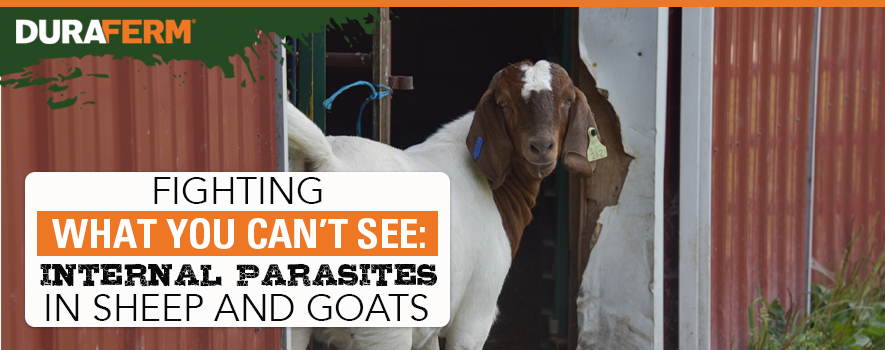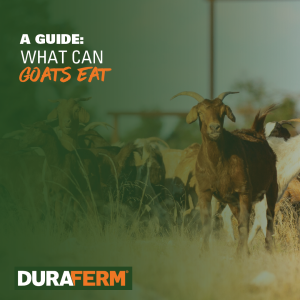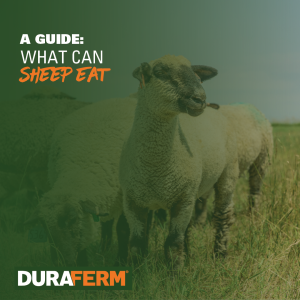
Sometimes the biggest pests are those you can’t even see. This is true for sheep and goat producers who tackle the challenges of internal parasites within their flocks and herds each year. These parasites cause anemia and decreased appetite leading to lowered performance and even death.
The common parasites producers should be aware of are barber pole worms, also called stomach worms, lung worms, liver flukes and coccidia. The three worms are of course found in the stomach, lungs and liver. Coccidia live in intestinal lining and destroy the layer that the animal needs to absorb nutrients.
Signs and Symptoms
The barber pole worm and coccidia are two of the most challenging parasites that both sheep and goat producers face annually. Both pests attack the digestive system at some level, causing weight loss and lowered performance, therefore impacting the flock or herds’ bottom line.
Barber pole worms are bloodsuckers damaging the lining of the stomach, causing anemia. Look for pale eyes and gums, shortness of breath, general weakness and loss of appetite. Bottle jaw, swelling under the jaw, is also a sign of stomach worms.
The most common sign of coccidia is diarrhea, which leads to weight loss and failure to perform. Both stomach worms and coccidia can be fatal if not prevented or treated early.
Limit Parasite Problems
Manage grazing. Most worms will breed in grass, not dirt, so larvae will reproduce during spring and summer grazing when grass is lush, and temperatures are above 50 degrees. It is important to limit grazing to small areas of grass and rotate your animals every 10 days to two weeks. Also consider rotating grazing with animals like horses or chickens that will disrupt the manure where the eggs hatch or if those animals do eat the worms, they won’t be harmed.
Know your animals. Genetics also play a role in fighting parasites and some bloodlines are resistant to particular parasites. Look for EBVs on your seedstock that show low worm burdens. Additionally, remember that your animals will eventually build an immunity to parasites. The most immune groups include dry ewes or does, followed by rams or bucks. The least immune groups that are likely to face challenges are lambs and kids and pregnant and lactating females. Be sure to monitor your flocks and herds for anything out of the ordinary on a regular basis.
Use a dewormer. Several dewormers and drenches are available on the market. Check with your veterinarian to discover which one is the best for your operation and use it sparingly. Livestock can build a resistance to these products, so overuse is not recommended. Just like with fly control, multiple dewormers or vaccines used in combination will likely work best to mitigate your parasite challenges.
Don’t skimp on nutrition. Often, parasites will first find their way into a malnourished or weak animal. It is imperative to provide your sheep and goats the best nutrition source available, and keep them healthy, starting with their digestive system, since both the barber pole worms and coccidia are found in the digestive tract.
DuraFerm® offers a line of sheep and goat supplements that provide balanced levels of vitamin and minerals required for growth, breeding, lambing and kidding. The DuraFerm line supports the immune system for maintaining herd health. All products contain Amaferm®, a precision prebiotic designed to enhance digestibility by amplifying nutrient supply for maximum performance. In addition to a loose mineral for both sheep and goats, DuraFerm also makes two tubs with added protein: DuraFerm® Sheep Concept•Aid® Protein Tub and DuraFerm® Goat Concept•Aid® Protein Tub, which each contain additional 16% and 20% protein, respectively.
Out of sight doesn’t mean these tiny internal parasites should be out of your mind. Do your best to control them from the beginning. Prevention starts with a high-quality nutrition program to keep your flock and herd in an ideal body condition. Health begins in the digestive system, and good health starts with good nutrition. Put a stop to these pests before they start.

